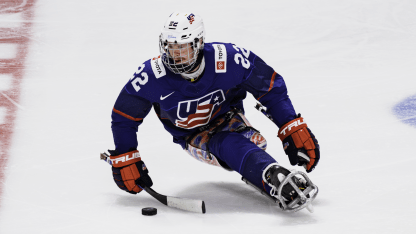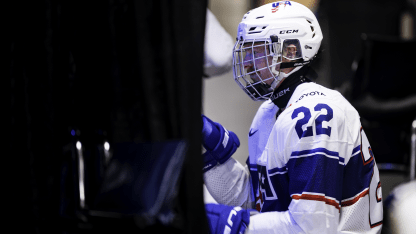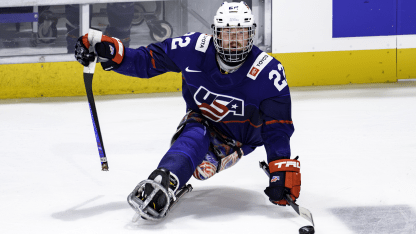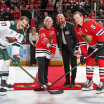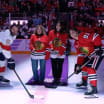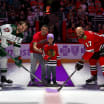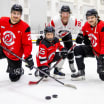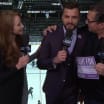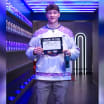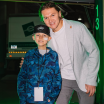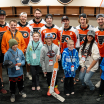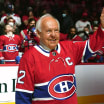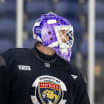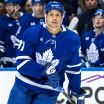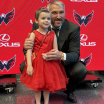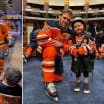To celebrate the 25th anniversary of Hockey Fights Cancer, the NHL will be sharing stories of those in the hockey world impacted by the disease on the 25th of each month all year long, except for Dec. 25. Today, the story of United States Paralympic sled hockey player Noah Grove.
Noah Grove doesn't think he was chosen for a higher purpose. The 24-year-old United States Paralympian has lived day by day since he was 5 years old, when his parents, Chris and Rachael, made a fateful choice that gave him a new lease on life.
Shortly before the 2022 Beijing Paralympics, Grove and his sled hockey teammates were asked to share a story about who they were playing for. He recalled his diagnosis of osteosarcoma, a form of bone cancer, in his left leg shortly before his fifth birthday and having the leg amputated not long after turning 5.
At the hospital, he noticed a couple of kids around his age being evaluated for similar cancers and remembered the gut-wrenching moment Chris and Rachael took a leap of faith while other parents decided against amputation for their children.
Grove said those who didn't get their legs amputated eventually died.
"All of them had the option to amputate and they didn't," Grove said, "and none of them are living today.
"That will always be something I think about when I take ice or wake up in the morning. Let's just appreciate the moments as they come. Don't take anything for granted because tomorrow isn't guaranteed."
Grove is a cancer survivor. He grew into a hockey player, a forward turned defenseman, two-time Paralympic gold medalist (2022; 2018 in PyeongChang) and three-time winner of the Para Sled Hockey World Championship (2019, 2021, 2023). He was named player of the game in Team USA's 3-1 preliminary round win over Canada in Ostrava in 2019. He has skated in four para hockey cups helping Team USA win five championships (2016-19, 2022).
